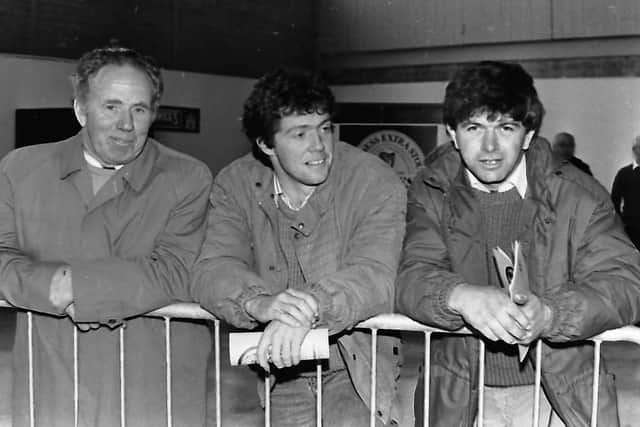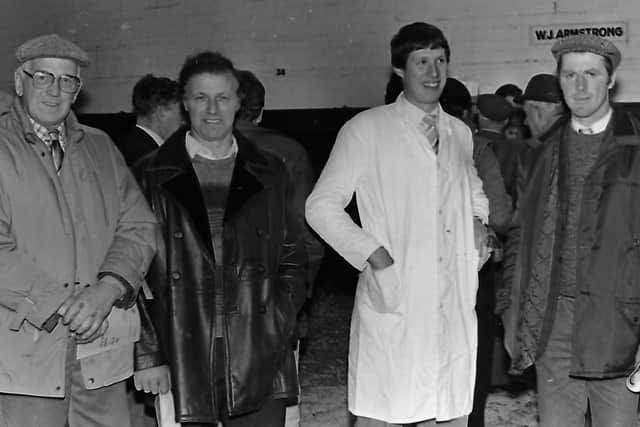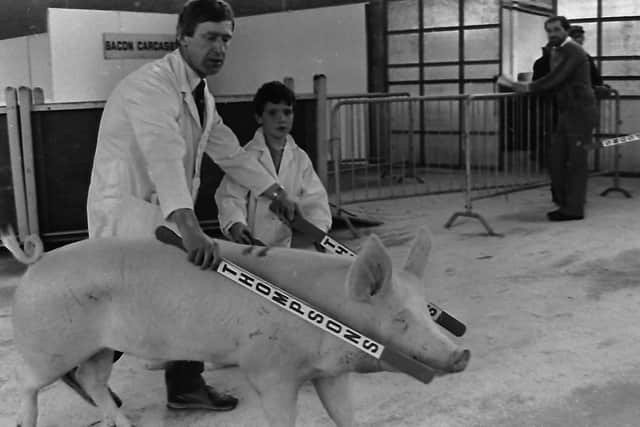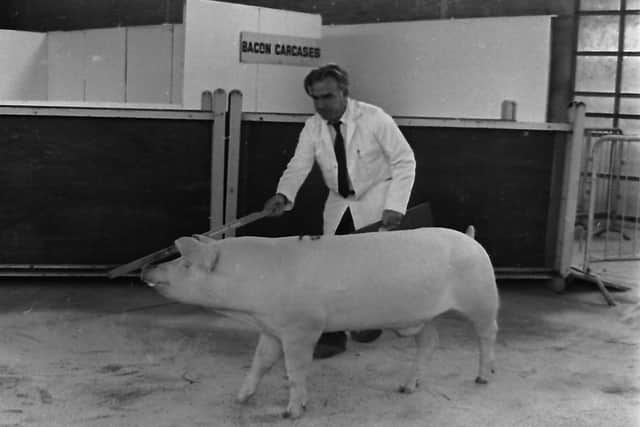BYGONE DAYS: The plight of seasonal workers is raised in the Ulster senate
and live on Freeview channel 276
During the debate Nationalist Senator Mr Paddy O’Hare asked the Leader of the House if he was aware of the hardship caused by the new regulations disallowing claims for unemployment benefit of seasonal agricultural workers and requiring that people in receipt of public assistance must Sty the weekly insurance contribution of 4s 9d during such periods of unemployment.
Mr William Moore Wallis Clark, the Deputy Leader, said that unemployment insurance for workers in agriculture was now provided as part of the National Insurance Scheme covering all classes of insured workers at the same standard rates of contribution and benefit.
Advertisement
Advertisement
He said: “The conditions of benefit for agricultural workers must, therefore, be the same as those for other contributors to the National Insurance Fund.


“Seasonal workers in agriculture are required to satisfy the same special conditions as seasonal workers in any other industry.”
Mr Clark continued: “The Seasonal Workers Regulations (Northern Ireland), 1950, were made by the National Insurance Joint Authority jointly with the Ministry of Labour and National Insurance, and are similar to the corresponding regulations made for the rest of the United Kingdom on the advice given by the National Insurance Advisory Committee.
“Claims to benefit by all persons under the National Insurance Acts and Regulations are determined solely by the statutory authorities, namely, the insurance officers, local tribunals and the umpire.
Advertisement
Advertisement
“The scheme and its administration should, accordingly, be accepted as fair and reasonable, and no implication of hardship can be easily entertained in view of the generous provisions of its counterpart, the National Assistance Scheme, which enabled help to be given to those in need.”


Continuing his response to Mr O’Hare in the Northern Ireland Senate, Mr Clark commented: “A seasonal worker can qualify for unemployment benefit during his off-season if he has registered for work throughout any periods of unemployment in the two preceding years and proved that he has been employed or would reasonably expect to be employed for a substantial part of the current off-season.
“I understood that, normally, employment for one-quarter of the off-season is regarded by the statutory authorities as satisfying the requirements.”
Concluding his statement to the Senate Mr Clark said that contributions could be deferred.
Advertisement
Advertisement
He said: “During the period in which he was disqualified for benefit an insured person is not entitled to a free credit of contributions; and the ordinary provisions of the Act applies under which, in the case of a non-employed man, a contribution of 4s 8d week is payable.


“Payment of the contributions might, however, be deferred, if the insured person wished, until employment has been resumed.
“If a seasonal worker has had 13 or more weeks of employment during the year for which contributions at the rate of 9s 1d have been paid, payment of contributions at the rate of 4s 8d a week for periods of disqualification in his off-season will be accepted as equivalent to contributions at the higher rate for the purpose of determining his title to benefit during periods of unemployment in the rest of the year.”
Sir Wilson Hungerford suggested that if a worker could defer his contributions until he had obtained other employment that the government might refund the contributions.
Advertisement
Advertisement
He said: “When the contribution is taken off unemployment benefit of 22s a week only 17s 4d is left, and it is unfair to suggest that a man could live on that.”


Responding to the statement from the Deputy Leader Senator O’Hare said that he did not see how any scheme run by the government or private individuals could hope to pay its way if casual workers were treated as liberally as regular workers. He thought that that was the point that really mattered.